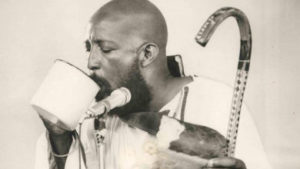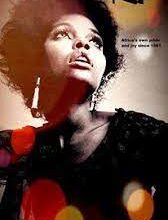Zex Manatsa was a true, renowned, Zimbabwean songwriter, singer, bass player and a real Legend in all respects. | A ZimLegends Production
You can read Zex Manatsa's story here and watch one of his YouTube videos ( Chivaraidze )

Zexie Manatsa

By Kamangeni Phiri
The Story of Two Stolen Guitars that Gave Birth to the Green Arrows
In another life, the late musician Zexie Manatsa, a master of satire and song, could easily have been a successful stand-up comedian.
The Green Arrows founding leader, who succumbed to a cancer-related illness in January 2022 just after turning 78, employed humour and wit in his songs to spice up religious, political and social messages with great satire.
Music critic and analyst, Fred Zindi, a lecturer at the University of Zimbabwe, says the legendary artiste’s humour and witticism went beyond the song.
Zindi recalls one of his best moments with Manatsa when he paid him a visit in 2020 at the UZ.
“He sat down and said, ‘Ndoda tea hobvu mupfanha’ (I want tea with lots of milk young man). And I also responded in jest by telling him the price of sugar and milk had skyrocketed. That’s how we opened up the meeting with that joke and I will forever cherish the moment,” said Zindi, making reference to one of Manatsa’s most popular and oldest tracks, Tea Hobvu.
One has to dig deeper to understand some of Manatsa’s songs. He delivered a serious message hidden in satire while at the same time promoting multilinguism and cultural egalitarianism (equality).
For example, Zexie’s yesteryear mega hits like Dzvinyu Kuzambira Zuva, Vaparadzi vawanda, Nyoka yendara and Vachaita Musangano Mapostori subtly attacked the oppressive Rhodesian government while songs like Tea Hobvu use satire to castigate greedy, selfish and corrupt leaders who keep the best things to themselves forgetting the people they lead.
The late crooner’s musical career hit its peak at almost the same time with the struggle for liberation in the 1970s.
But there was certainly nothing comic or satiric in the manner Manatsa started his professional musical career. When he entered the music scene as a raw teenager in the early 1960s, Manatsa and his brother, Stanley (also late), used home-made guitars, known as banjo, to entertain revellers at “tea parties”, beerhalls and community halls in and around Mangula (now Mhangura) mine for a fee. Their makeshift band would also perform in the surrounding farming communities.
The two brothers named their band The Spring Mambo and later briefly moved to Harare where they performed as Mambo Jazz Band. Zexie would play the bass guitar and pennywhistle as well as doing lead vocals for the group. The group did cover songs for popular South African bands.
A Chinhoyi based hotel proprietor heard about Zexie Manatsa and his Mambo band and invited them to play at his hotel as the resident band. They agreed but the businessman later failed to honour his promise of paying the band. The entrepreneur had bought them two guitars, a bass and a lead.
Zexie said to his brother Stanley: “How can we stay here without pay? We must leave this place and take these guitars.” https://newzwire.live/obituary-zexie-manatsa-from-two-stolen-guitars-to-an-enduring-legacy/
With their stolen guitars, the two Manatsa brothers headed to the more distant Bulawayo instead of Harare as a way of discouraging the businessman from following them.
Zexie and Stanley settled in Nguboyenja at a house opposite the Jairos Jiri Centre. They met Fanyana Dube, another doyen of Zimbabwean music, who was an inmate at the centre and together helped to form the Sunrise Kwela Kings in the mid 1960s.
The Manatsa brothers left the Sunrise Kwela Kings around 1968 after they were approached by a local businessman known as Homela to play at his hotel. They were given transport and a complete set of instruments but Fanyana Dube turned down the chance to join them.
Zexie and Stanley recruited their brother, Sebastian, who is now late and Raphael Mboweni. They were later joined by Maxie Mabhena in 1968, giving birth to the Green Arrows Band.
The band’s line-up had Zexie as the band’s bassist and lead vocalist/composer, Stanley on lead guitar and another brother Kadias (Sebastian) Manatsa on rhythm guitar, with Raphael Mboweni on drums. The band became a regular fixture on the Bulawayo nightclub circuit, performing renditions of contemporary popular groups then, which included Mahotella Queens and Izintombi Zesi Manje Manje.
Zexie had fallen in love with South African music in his formative years as a musician but he knew he had to tweak the beat once he started recording his own works.
He told American ethnomusicologist Thomas Turino that mbaqanga had always been his favourite but that he had to bend to fans’ tastes.
The Green Arrows’ biggest breakthrough came in 1974 when Manatsa moved to Harare. The move coincided with the start of his collaboration with West Nkosi, a South African music producer, who scouted and became the Green Arrows’ producer until 1980. Nkosi signed Zexie to the South African record label, Gallo Records and the band released a scorcher single, Chipo Chiroorwa in 1974.
Chipo Chiroorwa, which had a Marabi-influenced tune, became a wedding anthem. It was the first song by a black Zimbabwean to win a gold disc after it sold 25 000 copies.
By the end of 1979, the Green Arrows had released 36 seven singles and two albums with Waenda Mwana and Musoro Watsomba also winning gold discs. Manatsa also composed Chewa hits like Chechule Anavala Bottom, Musoro Wa tsomba, Atsamunda and Chimamuna Chamimba, after he mastered the language while still at school in Mhangura. While Chipo Chiroorwa might have been about weddings and eating cakes, Manatsa’s contribution to Chimurenga music, a genre sometimes known in Zimbabwe as “Songs that won the Liberation War” cannot be downplayed.
He had songs like Musango Mune Hangaiwa, released in 1977, a song invoking the spirit medium Nehanda to protect liberation fighters.
Many felt Manatsa deserved national hero status, given his role in the liberation struggle and post independent Zimbabwe. He would give his instruments to serve as a PA system at Zanu-PF rallies in the early 80s. The government accorded Manatsa a state assisted funeral.
But the Zexie Manatsa story can never be complete without mention of his colourful wedding with Stella Katehwe. Their wedding reception, held at the home of football, Rufaro Stadium on 25 August 1979, attracted a full house. Fans had to pay one Rhodesian dollar to get into the stadium and $19, 000 Rhodesian dollars was raised. However, the number of people who attended was estimated to be around fifty thousand.
A number of top artistes who included Chimurenga icon, Thomas Mapfumo, Tineyi Chikupo and the Green Arrows performed at the wedding. Manatsa’s band also performed but without their leader. Bishop Abel Muzorewa, the then prime mister of the short-lived Zimbabwe-Rhodesia had a rally on the same day and it flopped. He blamed Zexie Manatsa for the flop and the story made headlines in local media.
Manatsa was born in Doma, Sipolilo (now Guruve), on 1 January 1944. His father, a hunter, had two wives and several children. Life was not a bed of roses for young Zexie and his siblings. The Manatsa children had to work on farms to raise fees and for their upkeep.
Zexie only went as far as standard four and was forced to work in farms picking cotton at an early age. Together with his young brother, Stanley, they would supplement their meager income by playing music for a fee in surrounding farming and mining communities.
Zexie’s musical career came full circle when a series of misfortunes hit him in the 1980s. This included a near-fatal road accident in 1987 that left the musician in a comma for six weeks. When he recovered, the Manatsas’ fortunes took a turn for the worse. They lost houses, cars and band instruments. Zexie and his wife later converted to Christianity and joined the Zimbabwe Assemblies of God Africa (ZAOGA) church. The two trained as pastors and were ordained in 1994. His band changed its name to Gospel Arrows.
Zexie remained married to the same woman until his death, a rare achievement for a musician.
He is survived by his wife of more than 40 years, Stella, six sons who are all musicians, and several grandchildren.


